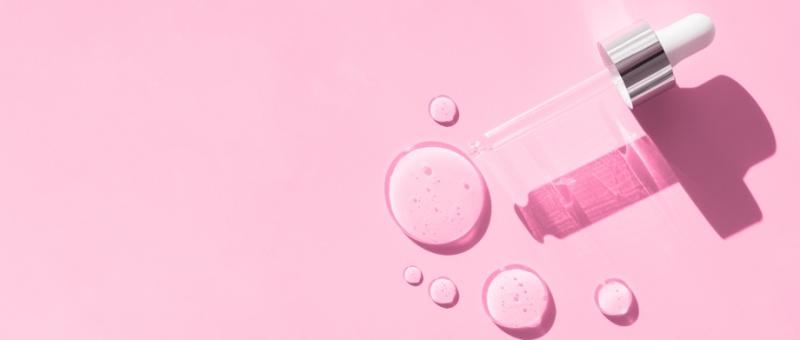
What does vitamin C serum do?
Peer reviewed by Dr Colin Tidy, MRCGPLast updated by Victoria RawLast updated 7 Jul 2025
Meets Patient’s editorial guidelines
- DownloadDownload
- Share
- Language
- Discussion
A good quality vitamin C serum can be a great addition to your skincare routine. With so many on the market, here's how to pick one with the most effective, scientifically-backed ingredients.
In this article:
Continue reading below
What does vitamin C serum do?
Vitamin C, also called L-ascorbic acid, is a key nutrient that plays an important role in our general health. We get our essential doses of vitamin C through the foods we eat every day, but can applying a vitamin C serum directly onto your skin have additional skincare, health, and aesthetic benefits?
Dr Ginni Mansberg is a GP, skin expert and founder of ESK Skincare.
She explains why the skincare industry is keen to use vitamin C:
Anti-ageing
"In its purest, most evidence-based form, L-ascorbic acid is an anti-oxidant - a substance that may prevent or delay some types of cell damage," says Mansberg. "This is probably why it's so good at reducing premature ageing. It's effective at protecting our skin from sun-induced skin changes that we see in the skin as we age. That also includes damage from sunburn, which vitamin C can help to prevent."
She adds that vitamin C also supports collagen production, which helps to reduce fine lines, wrinkles, and improve skin texture.
Healthy skin barrier and hydration
Vitamin C also helps to maintain a healthy skin barrier - the outermost layer of skin that protects against skin-damaging free radicals caused by external stressors like pollution. A healthy skin barrier also retains water, keeping your skin hydrated.
Hyperpigmentation
Mansberg explains that vitamin C can reduce the appearance of hyperpigmentation - patches of skin darker than the surrounding colour.
She says: "This is through a combination of its ability to switch off the main enzyme needed to make pigment in the skin, called tyrosinase, and its antioxidant and anti-inflammatory properties."
Are all vitamin C serums created equal?
Vitamin C for skin is so popular in the skincare industry that it's hard to know which product to choose. There's also a danger of over-paying, but the most expensive aren't always the most effective.
Different formulations of vitamin C serum can alter its strength and effects in the skin - but as well as thinking about the price you should consider the following information:
Your vitamin C product should:
Contain L-ascorbic acid - the best active form of vitamin C for skin. Manufacturers often try and get around these issues by bonding vitamin C with other related chemicals, such as magnesium ascorbyl phosphate and tetrahexyldecyl ascorbate, but there is no evidence that they work.
Have a pH lower than 3.5 - this refers to how acidic or alkaline a substance is. If a vitamin C serum doesn't disclose its pH that should be a red flag.
Be in an airless pump bottle - not a glass dropper which exposes your vitamin C to air and light.
Have minimal water content - all should contain water, but oil should be the first ingredient listed.
Have a strength of 10% to 20%.
Mansberg adds: "Ideally, a good vitamin C serum should be combined with vitamin E and, even better, with ferulic acid as well."
These additional ingredients help the vitamin C to work better and prevent its potency from vanishing into the air. If you can't find the above information on the ingredients list, check the manufacturer's website.
Continue reading below
How to use vitamin C serum
While vitamin C serum is generally well tolerated, it can take a little while for your skin to get used to it. Like all skin care products there are possible side effects.
These include:
Redness.
Itching or a mild burning sensation.
Bumps under the skin.
Does vitamin C help acne?
For most people, using vitamin C serum comfortably takes a little patience and persistence. This is especially true if you have acne-prone skin, as the best quality vitamin C serums are oil-based which may lead to breakouts.
You can introduce it gradually into your skincare routine by:
Applying a small sample to your forearm.
Wait to see if your skin reacts badly.
If no side effects occur, apply it to your face as the label instructs.
To gradually increase your tolerance, you may wish to either start applying a smaller amount than instructed per day or apply just three times a week, for the first two weeks.
You can safely use vitamin C serum with other active ingredients in your skincare routine, although products containing niacinamide may make vitamin C less effective.
When to use vitamin C serum
Once you're happy that you can apply vitamin C serum without causing irritation, Mansberg advises using your product every single day in the morning. This is because vitamin C helps protect your skin from pollution, ultraviolet light, and free radicals.
Patient picks for Skincare

Skin, nail and hair health
Retinol: skincare benefits, side effects and more
Whatever your age, if you've ever thought about skincare, you've probably heard of retinol. But if you're unsure exactly what it is - or why you might need to know - you're not alone. To confuse matters, the term 'retinol' is used in similar contexts as 'retinoid' and 'retinoic acid' among others. Here's an overview of retinol, its benefits for the skin and things to think about before adding it to your skincare routine.
by Lynn Stephen

Skin, nail and hair health
Hyaluronic acid: skincare benefits, side effects and more
If you're looking to add a serious shot of hydration into your skincare routine, look no further than hyaluronic acid. Unlike other skincare acids, this substance doesn't exfoliate but instead draws in moisture, keeping your skin protected while appearing more youthful.
by Lynn Stephen
Continue reading below
Article history
The information on this page is peer reviewed by qualified clinicians.
Next review due: 6 Jul 2028
7 Jul 2025 | Latest version
18 Nov 2022 | Originally published
Authored by:
Amberley Davis

Ask, share, connect.
Browse discussions, ask questions, and share experiences across hundreds of health topics.

Feeling unwell?
Assess your symptoms online for free
Sign up to the Patient newsletter
Your weekly dose of clear, trustworthy health advice - written to help you feel informed, confident and in control.
By subscribing you accept our Privacy Policy. You can unsubscribe at any time. We never sell your data.